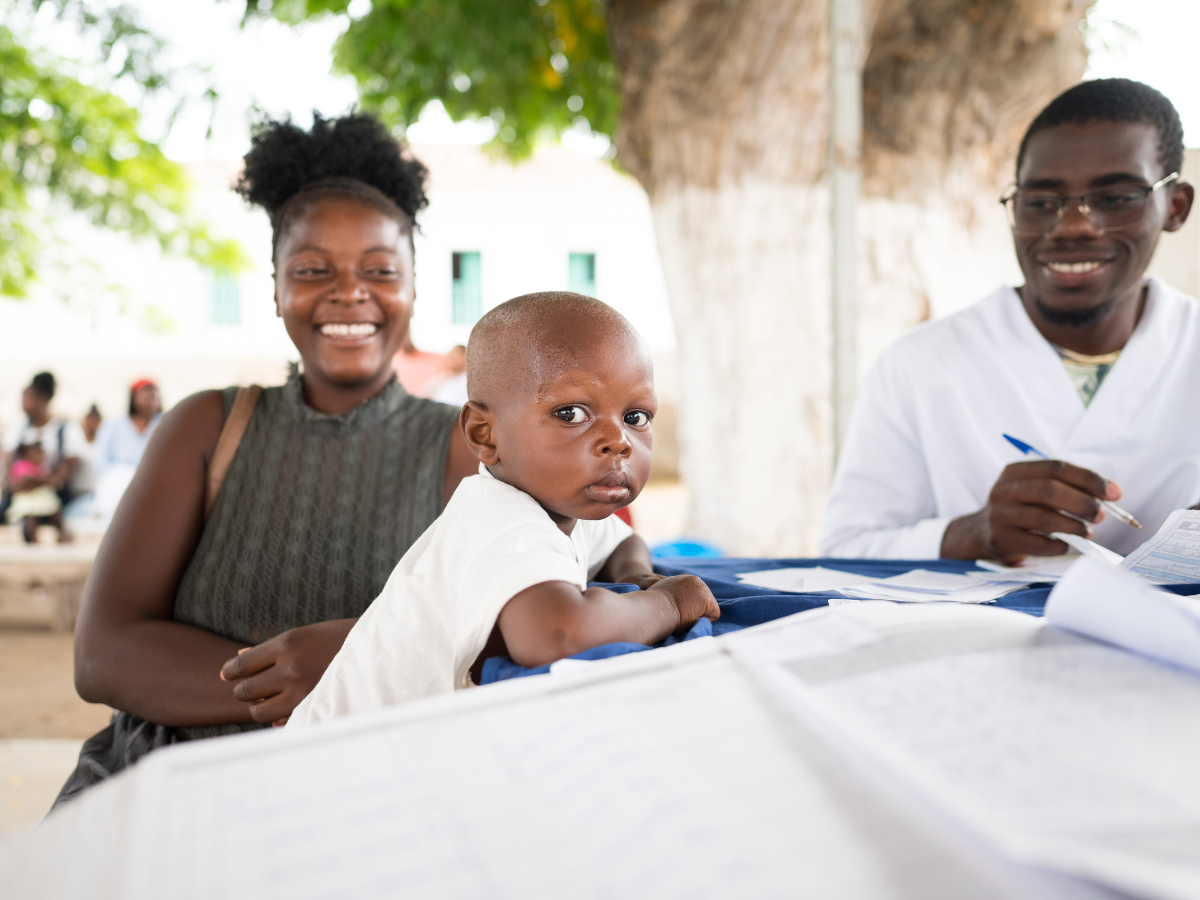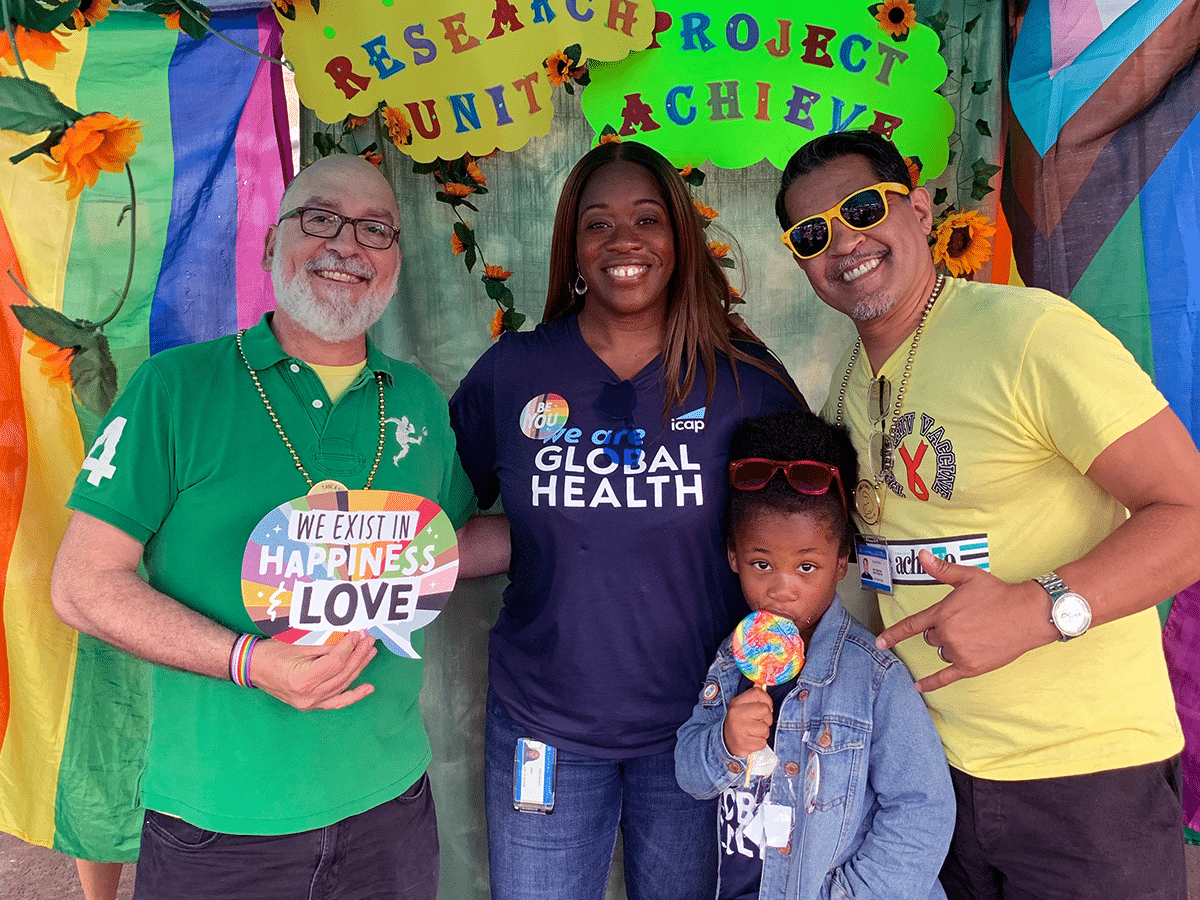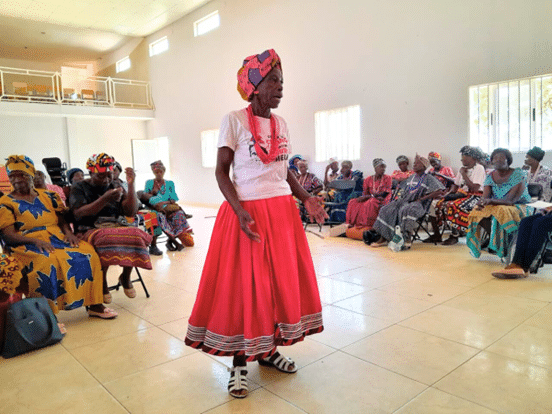Maria Isabel Rodriguez has been a nurse at CMI Benguela health facility in Benguela province, Angola, for 12 years. Support from ICAP at Columbia University, she said, has not just changed, but transformed client-centered care over her more-than-a-decade tenure.
“I used to see women run away when they learned they were HIV-positive,” she said. “Now, we have developed a system that supports them to be treated immediately after they test positive. It’s very rewarding to follow-up with women and see their progress.”
With support from the U.S. President’s Emergency Plan for AIDS Relief (PEPFAR) through the Centers for Disease Control and Prevention (CDC), ICAP in Angola provides technical assistance to 17 health facilities that offer antenatal care services, including CMI Benguela, in four provinces of the country. The program works to improve sustainable clinical practices for HIV care and treatment, with a special emphasis on preventing mother-to-child transmission (PMTCT) of HIV.
Across health facilities, ICAP in Angola provides mentorship, reinforcement, and provision of key messages for counseling recipients of care as they embark on HIV testing, antiretroviral treatment (ART) initiation, and follow-up care. The team provides weekly verification of clinical files of pregnant women who have attended health consultations, including adding reminders to files for viral load testing. ICAP administers phone calls – as well as refers mentor mothers to follow-up via home visit – to pregnant women living with HIV who have missed appointments or failed to initiate ART. ICAP also supports health facilities to begin HIV diagnosis of exposed children once they reach two months of age, while developing plans to continue to test them throughout a mother’s breastfeeding journey.
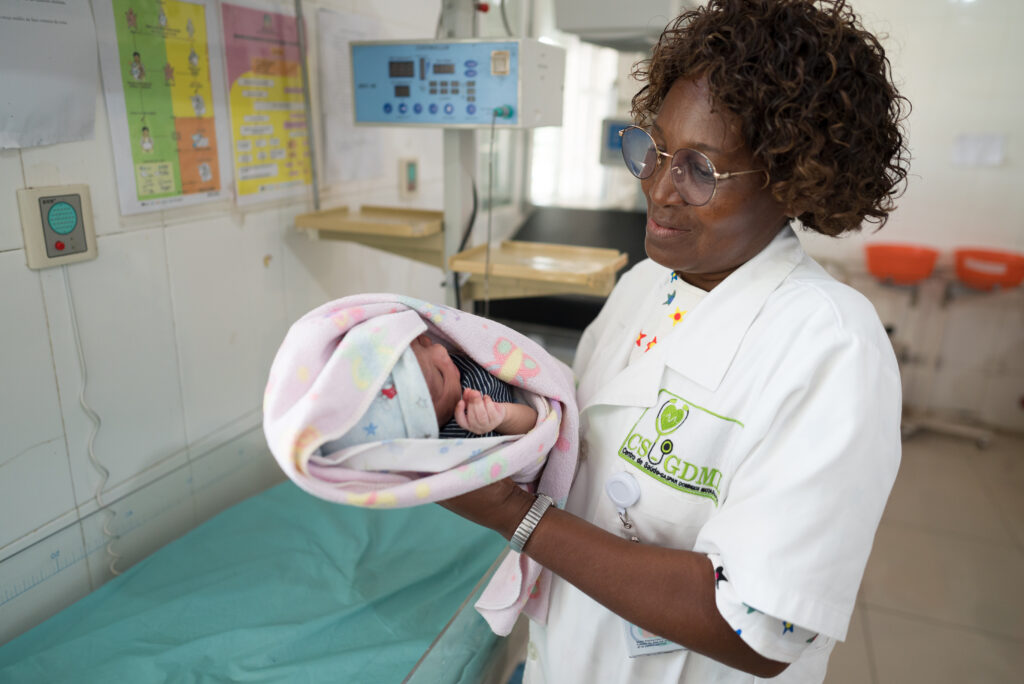
Nurse Preciosa Luisa Chilepa Kalumo cares for a newborn baby at Centro de Saúde Gaspar Domingos Matias Lopes, a health facility ICAP supports in Angola
The end goal is retainment – ensuring that pregnant and breastfeeding women living with HIV have access to the care and treatment they need both to keep their viral load suppressed and to protect their children from HIV transmission.
“When a pregnant or breastfeeding woman learns of her positive test results,” Rodriguez added, “she needs a lot of support. We build a strong bond with these women because of that. They trust us, we become a family, and they call us when they need us.”
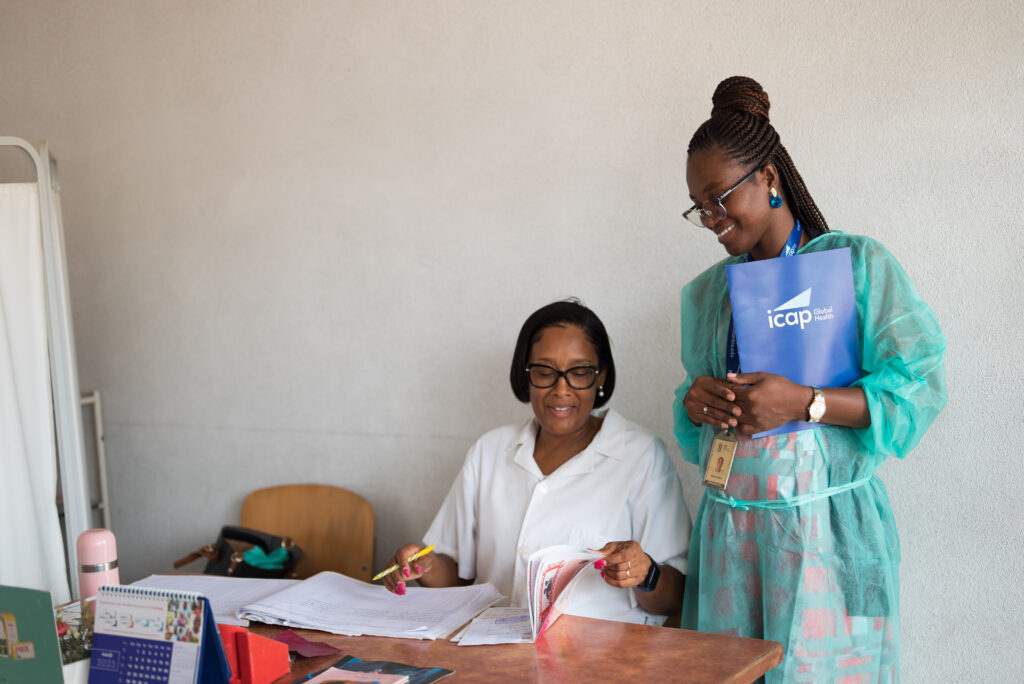
Maria Isabel Rodriguez works with Sonia Paulo, monitoring and evaluation provincial officer for ICAP in Angola, to review a patient’s history
Since ICAP’s launch in Angola, the program has catalyzed major improvements in antenatal care – at ICAP-supported facilities in 2023, 99.6 percent of pregnant women knew their HIV status compared to 38.6 percent of pregnant women in 2019. In 2023, 97.9 percent of pregnant women living with HIV at ICAP-supported facilities were on ART compared to 90.3 percent in 2019. By March 2023, viral suppression among pregnant women living with HIV was 94.7 percent.
In addition to providing mentorship to staff working directly with pregnant and breastfeeding women living with HIV, ICAP also provides health facilities stock control support for vital rapid HIV tests, as well as works with health facilities to facilitate data review meetings to discuss ongoing activities, challenges, and remediation action, including analysis of PMTCT data. Recently, ICAP in Angola supported health facilities in a transition to TLD – Tenofovir + Lamivudine + Dolutegravir – which is an HIV viral suppression pill that patients living with HIV take just once a day and that can be given in three- or six-month supply. The transition to multi-month ART dispensing is especially helpful for recipients of care who may live long distances from the closest health facility or face other challenges that stand in the way of receiving consistent care and treatment.
“Since the rollout of TLD, we have seen major improvements of ART adherence among women at our health facilities,” said Carlos Laudari, country director of ICAP in Angola. “It’s vital to understand the contexts that recipients of care are living in and to develop solutions that provide smooth, easily accessible pathways to care.”
Despite ICAP’s successes with pregnant and breastfeeding women, Laudari said there is still work to be done to address an important challenge across health facilities in Angola: early infant diagnosis of HIV.
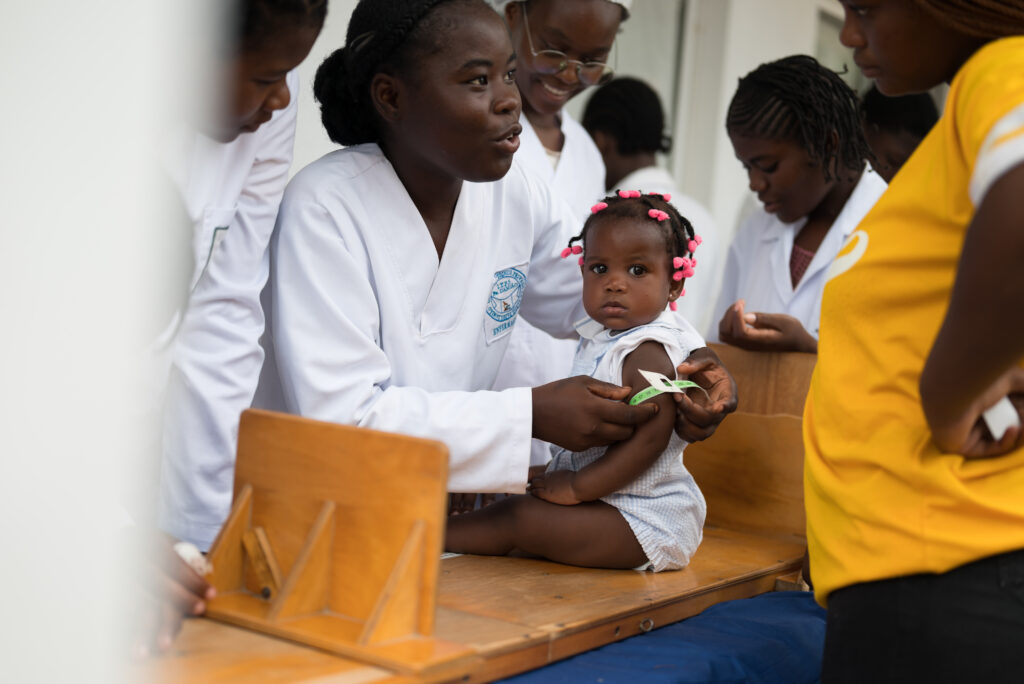
At CMI Benguela, health staff measure a child’s growth before she undergoes HIV testing
“An ideal outcome is an HIV-negative result of a child exposed to HIV at 18 months of age, but we continue to face challenges in the follow-up of care within the mother-child dyad,” said Laudari. “Our goal is to address this through improved community tracing of patients. We feel confident that we can take lessons learned from similar approaches implemented by other ICAP programs, such as in Mozambique.”
Isabel Florença, a mother living with HIV, recently brought her son to CMI Benguela health facility for his last HIV test since she stopped breastfeeding. She had worked with CMI Benguela health staff to prevent transmission of the virus, adhering to her antiretroviral treatment and consistently testing for viral load monitoring.
“Negative,” the health staff said, reading her the test results.
Isabel and the health staff grinned – a shared step forward for her, her family, and her community on the pathway to health.
Photos by Artur Francisco for ICAP
About ICAP
A major global health organization that has been improving public health in countries around the world for two decades, ICAP works to transform the health of populations through innovation, science, and global collaboration. Based at Columbia Mailman School of Public Health, ICAP has projects in more than 40 countries, working side-by-side with ministries of health and local governmental, non-governmental, academic, and community partners to confront some of the world’s greatest health challenges. Through evidence-informed programs, meaningful research, tailored technical assistance, effective training and education programs, and rigorous surveillance to measure and evaluate the impact of public health interventions, ICAP aims to realize a global vision of healthy people, empowered communities, and thriving societies. Online at icap.columbia.edu


